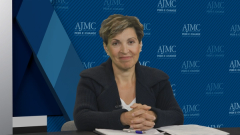
Impact of Generalized Pustular Psoriasis on Patients
Aaron Farberg, MD, and Mark G. Lebwohl, MD, discuss the relapsing nature of generalized pustular psoriasis and how the difficulty in diagnosing the disease affects outcomes for patients.
Episodes in this series

Ryan Haumschild, PharmD, MS, MBA: You also mentioned patients need to be able to recognize it. And with generalized pustular psoriasis [GPP] we’re also familiar with flares. These patients sometimes will have repeated relapsing of the disease. And so, for that, I turn to Dr Farberg to comment on this a little bit, if you will? We talked about some pustular psoriasis having this relapsing or flares. Talk to us about the impact that has on the patient’s treatment plan. How long do these flares typically last and is there anything we can do to prevent these flares from occurring?
Aaron Farberg, MD: That’s a great question. I would say, just imagine with me for a moment that you’re diagnosed with a deadly disease and then you hear the word relapse. Everybody’s heart sinks. That’s the last thing you ever want to hear if you’re diagnosed with a dangerous and deadly disease. You somehow get through it, you’re treated and you’re feeling better, but you’re going to spend the rest of your life worried, panicked, and concerned that you might have a relapse. That right there shows the impact this has on our patients, and it has the same impact on us dermatologists. We absolutely want to prevent that whenever we can. Now, how long do these flares typically last? Well, just remember how long it takes some of these treatments to even work; weeks, sometimes months, to get any real impactful improvement. Thankfully, we have newer medications, particularly spesolimab [Spevigo], which can speed that up. But the reality is, is these flares can sometimes last weeks to months and that is a bad day for any of us, for our patients, and us dermatologists as well. What can we do to prevent these flares? It’s getting them on the right treatments, getting them on the treatments that work for those patients. And unfortunately, it’s not always easy. I know that there was a discussion about potential biomarkers and figuring out the right drug for the right patient. Personalized medicine, of course, is the goal, but thankfully, we have a drug such as spesolimab, that works in the IL [interleukin]-36 pathway and can have a huge impact on these patients. We’re still studying spesolimab currently. How often do we need to be utilizing this medication to prevent flares? There are so many questions. We’re still just at the tip of the iceberg in understanding this disease to its completeness. But it’s an exciting time as a researcher and a scientist to be looking into this type of disease and as a dermatologist to be able to provide treatment options to my patients.
Transcript edited for clarity.
Newsletter
Stay ahead of policy, cost, and value—subscribe to AJMC for expert insights at the intersection of clinical care and health economics.









